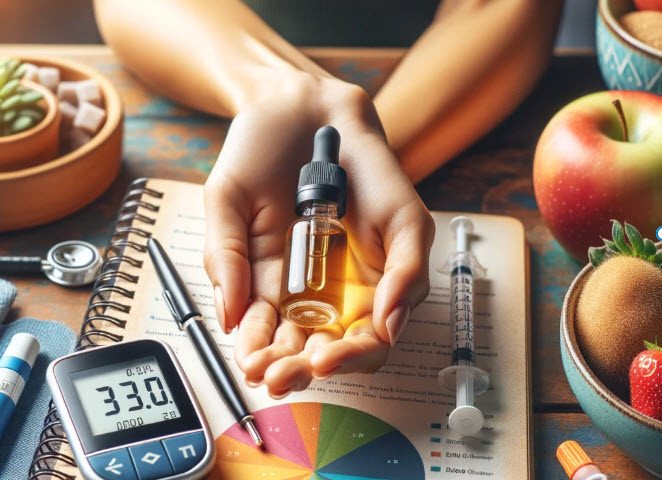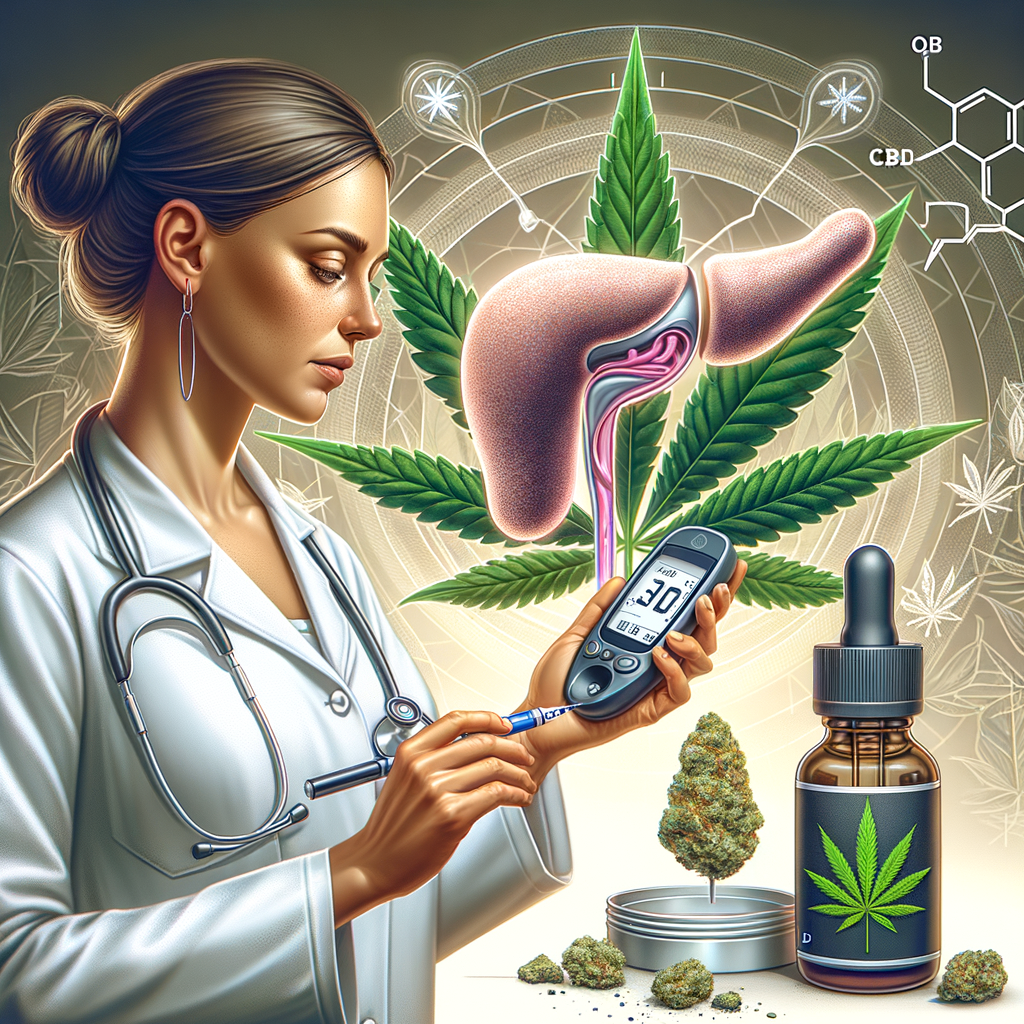CBD and Diabetes Overview
Cannabidiol (CBD) oil has gained attention as a potential complementary therapy for diabetes management. While not a treatment for diabetes itself, research suggests CBD may help address some diabetes-related complications and symptoms.
Current Research Findings Emerging studies indicate that CBD may influence various metabolic processes relevant to diabetes management. Some clinical trials have observed improvements in markers like insulin sensitivity and lipid profiles, suggesting potential benefits in metabolic health. Animal studies also point toward anti-inflammatory effects that could mitigate the chronic low-grade inflammation commonly seen in diabetic patients. However, most of this research is preliminary, often involving small sample sizes or animal models, and there’s a lack of large-scale, randomized controlled trials to confirm these findings. Additionally, researchers are exploring how different dosages, forms of CBD, and treatment durations impact outcomes. Overall, while early data is encouraging, further rigorous research is necessary to establish definitive therapeutic roles for CBD in diabetes care.
Potential Benefits for Diabetics
1. Inflammation Reduction
- Chronic inflammation plays a role in insulin resistance
- CBD's anti-inflammatory properties may help improve insulin sensitivity
2. Neuropathic Pain Relief
- May alleviate diabetic neuropathy pain
- Potential alternative to traditional pain medications
3. Blood Sugar Regulation
- Some animal studies show improved glucose metabolism
- Human clinical evidence remains limited
4. Anxiety and Stress Management
- Stress can negatively impact blood sugar control
- CBD may help reduce diabetes-related stress
Current Research Findings
Supportive Evidence
- 2016 study showed CBD reduced inflammation and delayed diabetes onset in mice
- Small human studies suggest possible benefits for neuropathy
- May help regulate hormones involved in glucose metabolism
Limitations and Unknowns
- Most studies have been conducted on animals
- Optimal CBD dosage for diabetes not established
- Long-term effects in diabetic patients unknown
Usage Considerations
Product Selection
- Choose full-spectrum or broad-spectrum CBD products
- Look for third-party lab testing results
- Start with low doses (10-20mg daily)
Safety Precautions
- May interact with some diabetic medications
- Possible side effects include dry mouth, drowsiness
- Consult your doctor before use, especially if taking insulin
Frequently Asked Questions
Q: Can CBD oil replace my diabetes medication?
A: No, CBD should not replace prescribed diabetes treatments. It may serve as a complementary therapy under medical supervision.
Q: Will CBD lower my blood sugar too much?
A: While some studies suggest modest effects on glucose, CBD is unlikely to cause dangerous lows. However, monitor your levels closely when starting.
Q: How long does it take for CBD to work for diabetic neuropathy?
A: Effects may be noticed within days for some, while others may need weeks of consistent use. Results vary by individual.
Q: Is CBD safe for type 1 diabetics?
A: Preliminary research suggests possible benefits for both type 1 and type 2, but always consult your endocrinologist first.
Q: What's the best way to take CBD for diabetes?
A: Sublingual oils allow for precise dosing. Topicals may help with localized neuropathy pain.
Key Takeaways
- CBD shows promise for managing some diabetes symptoms and complications
- Not a substitute for conventional diabetes treatment
- May help with inflammation, neuropathy, and stress management
- Human research is still in early stages
- Consult your healthcare provider before trying CBD
The content of this post is provided for informational purposes only. It is essential to consult with a qualified healthcare professional before making any decisions regarding your health or wellness. The author is not a licensed medical professional, and this information should not be considered medical advice.
If you require any assistance with this article, please do not hesitate to Contact Us.














